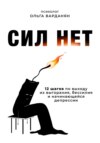Читать книгу: «The Young Musician; Or, Fighting His Way», страница 5
CHAPTER XV. ESCAPE AND FLIGHT
Though the boys had made as little noise as possible, conversing in an undertone, they had been heard by Mrs. Tucker. Her husband, as was his custom, had gone to sleep; but Mrs. Tucker, who, during the day, had discovered the loss of ten cents from her bureau drawer in which she kept her savings, had been kept awake by mental trouble. Some of my readers may think so small a loss scarcely worth keeping awake for, but Mrs. Joe Tucker was a strictly economical and saving woman—some even called her penurious—and the loss of ten cents troubled her.
She would have laid it to one of “them paupers,” as she was wont contemptuously to refer to them, except that she never allowed one of them to enter the sacred precincts of her chamber.
A horrible thought entered her mind. Could it be Zeke, the boy whom she thought such a paragon, though no one else had been able to discover his virtues or attractions! She did not like to think of it, but it did occur to her that Zeke, the previous day, had asked her for ten cents, though he would not own the purpose for which he wanted it. The boy might have been tempted to take the money. At any rate, she would go and see.
Zeke slept in a small room adjoining. When his mother entered, with a candle in her hand, he was lying asleep, with his mouth wide open, and one arm dropped over the side of the bed.
Mrs. Tucker took a look at him, and saw that he was wrapped in slumber and unable to notice what she proposed to do. His clothes were thrown down carelessly on a chair near-by.
Mrs. Tucker searched first in the pockets of his pants, and, though she discovered a large variety of miscellaneous articles, “of no use to any one except the owner,” she didn’t discover any traces of the missing dime. She began to hope that he had not taken it, after all, although, in that case, the loss would continue to be shrouded in obscurity. But, on continuing her search, she discovered in one of the pockets of his vest a silver ten-cent piece.
Mrs. Tucker’s eyes flashed, partly with indignation at Zeke’s dishonesty, partly with joy at the recovery of the missing coin.
“I’ve found you out, you bad boy!” she said, in a low voice, shaking her fist at the sleeping boy. “I wouldn’t have believed that my Zeke would have robbed his own mother. We must have a reckoning to-morrow.”
She was half-inclined to wake Zeke up and charge him with his crime, confronting him with the evidence of it which she had just discovered; but on second thoughts she decided that she might as well let him sleep, as the next day would do just as well.
Poor Zeke! he was not guilty, after all, though whether his honesty was strict enough to resist a powerful temptation, I am not sure.
The dime which Mrs. Tucker had discovered was the same one that Philip had given to Zeke in return for his service in notifying Frank Dunbar of his captivity. In another pocket was the five-cent piece given him by Frank, but that had escaped his mother’s attention.
The reader will understand now how it happened that Mrs. Tucker was kept awake beyond her usual time. She was broad awake when Frank Dunbar arrived, and she heard something through the partially open window of the conference between the two boys. She heard the voices that is to say, but could not tell what was said.
With her mind dwelling upon Zeke’s supposed theft, however, she was more easily frightened than usual, and immediately jumped to the conclusion that there were burglars outside, trying to get in.
The absurdity of burglars attempting to rob the town poorhouse did not occur to her in panic. She sat up in bed, and proceeded to nudge her husband in no gentle fashion.
“Mr. Tucker!” she exclaimed.
Her husband responded by an inarticulate murmur, but did not wake.
“Mr. Tucker!” she exclaimed, in a louder voice, giving him a still more vigorous shake.
“Eh! What! What’s the matter?” said Tucker, opening his eyes at last, and staring vacantly at his wife.
“What’s the matter!” retorted his wife impatiently. “The matter is that there’s burglars outside!”
“Let ‘em stay outside!” said Joe Tucker, in a sleepy tone.
“Did any one ever hear such a fool?” exclaimed Mrs. Tucker, exasperated. “They’re trying to get in. Do you hear that, Mr. Tucker?”
“Trying to get in! Is the door locked?” asked Joe, a little alarmed.
“You must get up and defend the house,” continued Mrs. Tucker.
Now, Mr. Tucker was not a brave man. He had no fancy for having a hand-to-hand conflict with burglars, who might be presumed to be desperate men. It occurred to him that it would be decidedly better to stay where he was and ran no risk.
“Never mind, Abigail,” he said, soothingly. “The burglars can’t do us any harm. They can’t do any more than carry off a pauper or two, and I don’t, believe they’ll do that.”
“I wouldn’t mind that, Mr. Tucker; but I’ve left the spoons down-stairs!” answered his wife.
“How many are there!”
“Six. I want you to go down and get them and bring them up here, where they will be safe.”
“But suppose I should meet some of the burglars!” suggested Tucker, trembling.
“Then you must defend yourself like a man!”
“You might find me in the morning weltering in my gore!” said Joe, with an uneasy shudder.
“Are we to have the spoons stolen, then!” demanded Mrs. Tucker sharply.
“If you care so much for the spoons, Abigail, you’d better go down-stairs yourself and get ‘em. I don’t value them as much as my life.”
“I don’t know but I will, if you’ll look out of the window and see whether you can see any of the burglars outside,” responded Mrs. Tucker. “If they haven’t got in yet, I’ll take the risk.”
“Where did you hear ‘em, Abigail?”
“Eight outside. Open the window and look out, and you may see ‘em.”
Mr. Tucker was not entirely willing to do this, but still he preferred it to going down-stairs after the spoons, and accordingly he advanced, and, lifting the window, put his head out, as described at the close of the last chapter.
Philip and Frank were just ready to go when they heard the window rising, and naturally looked up in some trepidation.
“It’s old Tucker!” said Frank, in a low voice.
Philip looked up, and saw that his friend was right.
Mr. Tucker had not yet discovered them, but the whisper caught his ear, and looking down he caught sight of the two boys.
In his alarm, and the obscurity of the night, he did not make out that they were boys and not men, and was about to withdraw his head in alarm, when a mischievous impulse seized Frank Dunbar.
“Give me the ball, Philip!” he said quickly.
Philip complied with his request, not understanding his intention.
Now, Frank belonged to a baseball club, and had a capital aim. He threw up the ball and struck Mr. Tucker fairly in the nose. The effect upon the terrified Joe was startling.
Full as his mind was of burglars, he fancied that it was something a great deal more deadly that had struck him.
“Oh, Abigail! I’m shot through the brain!” he moaned in anguish, as he poked in his head and fell back upon the floor.
“What do you mean, Joe?” asked his wife, in alarm, as she hastened to her prostrate husband, whose hand was pressed convulsively upon the injured organ, which, naturally ached badly with the force of the blow.
“I’m a dead man!” moaned Mr. Tucker; “and it’s all your fault. You made me go to the window.”
“I don’t believe you’re shot at all! I didn’t hear any report,” said Mrs. Tucker. “Let me see your face.”
Mr. Tucker withdrew his hand mournfully.
“You’ve only been struck with a rock or something,” said she, after a careful examination.
“It’s bleeding!” groaned Joe, seeing a dark stain on his night-dress.
“Suppose it is—it won’t kill you. I’ll look out myself.”
But she saw nothing. Philip and Frank had immediately taken to flight, and vanished in the darkness.
“They’ve run away!” announced Mrs. Tucker. “My spoons are safe.”
“But my nose isn’t,” groaned Mr. Tucker.
“You won’t die this time,” said Mrs. Tucker, not very sympathetically. “Soak your nose in the wash-basin, and you’ll be all right in the morning.”
The two boys were destined to have another adventure that night.
CHAPTER XVI. A NIGHT ADVENTURE
“I didn’t mean to hit him,” said Frank, as he and Philip hurried away from the poorhouse, “I only intended to give him a fright.”
“I think you have. I wonder whether he recognized us!”
“I don’t believe it. He had hardly got his head out of the window before I let drive.”
“Then he won’t imagine I have escaped.”
“What are your plans, Phil? Suppose they try to take you back to the poorhouse?”
“They won’t get the chance. Before five o’clock to-morrow morning I shall leave Norton.”
“Leave town?” exclaimed Frank, in surprise. “And so soon?”
“Yes. There is nothing for me to do here.”
“Father would like to have you stay and assist him on the farm. He said so to me. He wouldn’t be able to pay much, but I think we would have a good time together.”
Philip pressed his friend’s hand warmly.
“I know we should, Frank,” he said, “but if I remained here, it would only remind me of my poor father. I would rather go out into the world and try my fortune.”
“Isn’t it risky, Phil?” objected Frank doubtfully.
“I suppose it is; but I am willing to work, and I don’t expect much.”
“Suppose you fall sick?”
“Then, if I can, I will come back to you and your good father and mother, and stay till I am well.”
“Promise me that, Phil?”
“I promise.”
“I wish I could go with you, Phil,” said Frank, with a boyish impulse.
“No, it wouldn’t be wise for you. You have a good home, and you will be better off there than among strangers.”
“It might be your home, too, Phil.”
“Thank you; but I shall be better away from Norton for a time.”
A minute later, Frank said suddenly:
“There’s Squire Pope coming. He will see you.”
“I don’t care. He won’t take me back.”
“Get behind the stone wall, and I will wait and interview him.”
Philip immediately followed the advice of his friend. He was curious to hear what the squire would say.
Squire Pope’s eyesight was not good, and it was only when he came near that he recognized Frank Dunbar. He stopped short, for there was a subject on which he wished to speak.
“Frank Dunbar!” he said.
“Do you wish to speak to me, sir?” inquired Frank coldly.
“Yes. Where have you been?”
“Out walking,” answered Frank shortly.
“Have you been to the poorhouse?”
“I have.”
“Did you see Philip?”
“I saw him looking out of a third-story window.”
Squire Pope chuckled, if, indeed, such a dignified man can be said to chuckle.
“What did he say?” he condescended to inquire.
“That he wouldn’t stay.”
“He will have to,” responded Squire Pope complacently. “Mr. Tucker will see to that.”
“Probably Mr. Tucker will wake up some fine morning and find Phil’s room empty,” said Frank quietly.
“I’ll take the risk of it,” returned the squire serenely. “But there’s a matter I want to speak to you about. You’ve got Philip’s fiddle in your possession.”
“Suppose I have.”
“I wish you to bring it round to my house in the morning, and I’ll give you something for your trouble.”
“You must excuse me, Squire Pope. If it were your property, I would bring it to you and charge nothing for my trouble.”
“Young man,” said the squire sternly. “I am Philip’s legal guardian, and I have a right to receive his violin. You will get into trouble if you resist my authority.”
“If you will give me Philip’s order for it, you shall have it, sir.”
“Frank Dunbar, you are trifling with me. Philip is now a pauper, and has no right to hold property of any kind. He cannot give a legal order.”
“Then you are guardian to a pauper?”
“In my capacity of overseer of the poor.”
“In my capacity as Philip’s friend, I refuse to consider you his guardian. You may call him a pauper, but that doesn’t make him one.”
“He is an inmate of the Norton Poorhouse.”
Frank laughed.
“I don’t want to be disrespectful, Squire Pope,” he said; “but I can’t help telling you that you undertook a bigger job than you thought for, when you made up your mind to make a pauper of Philip Gray.”
Squire Pope was indignant at the coolness of Frank.
“I shall come to your house to-morrow morning,” he said, “and convince you to the contrary.”
“Very well, sir.”
Frank Dunbar bowed, and the squire went his way.
“That’s a very impudent boy!” he soliloquized. “Just like the Gray boy. It wouldn’t do him any harm to put him under Joe Tucker’s care, too.”
After the squire had passed on, Philip came out from behind the stone wall.
“Did you hear what passed between your guardian and myself?” asked Frank.
“Yes, I heard every word.”
“He little thought that the bird had flown, Phil.”
“He will make all the trouble he can. That is one more reason why I think it best to leave town.”
“I wouldn’t let Squire Pope drive you out of town.”
“I would stay and face the music if it suited me, but I want to go away.”
“Suppose we cut across this field. It will be a little nearer.”
“All right.”
There was a pathway through a pasture-lot, comprising some ten acres, poor land, covered with puny bushes, and a few gnarled trees, producing cider-apples. It belonged to an old bachelor farmer, who lived in solitary fashion, doing his own cooking, and in general taking care of himself. He was reputed to have money concealed about his premises, which was quite probable, as he spent little, and was known to have received, four years before, a considerable legacy from the estate of a brother who had died, a successful merchant in the city of New York.
The boys had to pass by the small and weather-stained house where he lived, as the path ran very near it.
When within a few rods of the house, the boys were startled by a sharp cry of terror, which appeared to proceed from inside the house.
Both simultaneously stood still.
“What’s that!” exclaimed both in concert.
“Somebody must be trying to rob Mr. Lovett,” suggested Frank.
“Can’t we do something!” said Phil quickly.
“We can try.”
There were two stout sticks or clubs lying on the ground at their feet. They stooped, picked them up, and ran to the house. A glance showed that one of the windows on the north side had been raised.
The window sill was low. Pausing a moment before springing over it into the room, they looked in and this was what they saw:
The farmer lay half-prostrate on the floor, half supporting himself by a chair, which he had mechanically grasped as he was forced downward. Over him stood a ruffianly looking tramp, whom Phil remembered to have seen about the streets during the day, with a stick uplifted. He had not heard the approach of the boys.
“Give me two hundred dollars, and I’ll go,” he said to the man at his feet.
“I cannot do it. I haven’t got as much here.”
“That’s a lie!” said the other coarsely. “I heard all about you to-day. You’re a miser, and you’ve got no end of money stowed away here. Get it for me, quick, or I’ll dash your brains out.”
Just then the prostrate farmer saw what the tramp could not see, his back being turned to the window, the faces of the two boys looking through the window. Fresh courage came to him. Single-handed, and taken at advantage, he was no match for the ruffian who had entered his house; but with these two young auxiliaries he felt that all was not lost.
CHAPTER XVII. A REFORMED BURGLAR
“What do you say!” demanded the tramp impatiently. “Speak quick! I can’t stay here all night.”
“Let me up, and I’ll see if I can find the money for you.”
“I thought I’d bring you to terms,” said the tramp, laughing grimly.
He allowed his victim to rise, as he certainly would not have done if he had looked behind him and seen the two boys at the window.
“Now’s our time,” answered Philip.
He gave a light spring into the room, followed by Frank.
Of course, the tramp heard them, and turned in sudden alarm. As he turned, the farmer snatched the club from his hand, and he found himself unexpectedly unarmed and confronted by three enemies.
“It’s my turn now,” said Lovett. “Do you surrender?”
The tramp saw that the game was up and made a dash for the open window, but Philip skillfully inserted a stick between his legs, and tripped him up, and, with the help of Mr. Lovett, held him, struggling desperately, till Frank fetched a rope, with which he was securely bound.
“Confound you!” he said, scowling at the two boys. “But for you I would have succeeded and got away with my booty.”
“That’s true!” said the farmer. “I owe my escape from robbery, and, perhaps, bodily injury, to you.”
“I am glad we were at hand,” said Philip.
“And now, my friend,” said the farmer, “I may as well say that you were quite mistaken in supposing I kept a large amount of money in this lonely house. I should be a fool to do it, and I am not such a fool as that.”
“Where do you keep your money, then?” growled the tramp.
“In different savings-banks. I am ready to tell you, for it will do you no good.”
“I wish I’d known it sooner. I came here on a fool’s errand.”
“I am glad you have found it out.”
“Now, what are you going to do with me!”
“Keep you here till I can deliver you into the hands of the law.”
“That won’t do you any good.”
“It will give you a home, where you cannot prey on the community.”
“I don’t mean to do so any more. I’m going to turn over a new leaf and become an honest man—that is, if you’ll let me go.”
“Your conversion is rather sudden. I haven’t any faith in it.”
“Listen to me,” said the man, “and then decide. Do you think I am a confirmed lawbreaker?”
“You look like it.”
“Yes, I do; but I am not. Never in my life have I been confined in any prison or penitentiary. I have never been arrested on any charge. I see you don’t believe me. Let me tell you how I came to be what I am: Two years since I was a mechanic, tolerably well-to-do, owning a house with a small mortgage upon it. It was burned to the ground one night. I built another, but failed to insure it. Six months since, that, too, burned down, and left me penniless and in debt. Under this last blow I lost all courage. I left the town where I had long lived, and began a wandering life. In other words, I became a tramp. Steadily I lost my self-respect till I was content to live on such help as the charitable chose to bestow on me. It was not until to-day that I formed the plan of stealing. I heard in the village that you kept a large sum of money in your house, and an evil temptation assailed me. I had become tired of wandering, and determined to raise a sum which would enable me to live at ease for a time, I should have succeeded but for these two boys.”
“And you are sorry you did not succeed?”
“I was, five minutes since, but I feel differently now. I have been saved from crime. Now, I have told you my story. Do with me as you will.”
The man’s appearance was rough, but there was something in his tone which led Mr. Lovett to think that he was speaking the truth.
“Boys,” he said, “you have heard what this man says. What do you think of it?”
“I believe him!” said Philip promptly.
“Thank you, boy,” said the tramp. “I am glad some one has confidence in me.”
“I believe you, too,” said Frank.
“I have not deceived you. Your words have done me more good than you think. It is my first attempt to steal, and it shall be my last.”
“If you want to become an honest man, God forbid that I should do aught to prevent you!” said the farmer. “I may be acting unwisely, but I mean to cut this rope and let you go.”
“Will you really do this?” said the tramp, his face lighting up with mingled joy and surprise.
“I will.”
He knelt on the floor, and drawing from his pocket a large jack-knife, cut the rope.
The tramp sprang to his feet.
“Thank you,” he said, in a husky voice. “I believe you are a good man. There are not many who would treat me as generously, considering what I tried to do just now. You sha’n’t repent it. Will you give me your hand!”
“Gladly,” said the farmer; and he placed his hand in that of the visitor, lately so unwelcome. “I wish you better luck.”
“Boys, will you give me your hands, too?” asked tke tramp, turning to Philip and Frank.
Tke boys readily complied with his request, and repeated the good wishes of the farmer.
The stranger was about to leave the house, when Lovett said:
“Stay, my friend, I wish to ask you a question.”
“Very well, sir.”
“Have you any money?”
“Not a cent.”
“Then take this,” said the farmer, drawing from his vest pocket a five-dollar bill. “I lend it to you. Some time you will be able to repay it, if you keep to your resolution of leading an honest life. When that time comes, lend it to some man who needs it as you do now.”
“Thank you, sir. I will take it, for it will help me greatly at this time. Good-by! If you ever see me again, you will see a different man.”
He leaped through the window and was gone.
“I don’t know if I have done a wise thing, but I will take the risk,” said the farmer. “And now, boys, I want to make you some return for your assistance to-night.” Both Frank and Philip earnestly protested that they would receive nothing in the conversation that ensued. Philip made known his intention to leave Norton the next morning.
“What are your plans? Where do you mean to go?” asked the farmer.
“I don’t know, sir. I shall make up my mind as I go along. I think I can make my living somehow.”
“Wait here five minutes,” said Lovett, and he went into an adjoining room.
Within the time mentioned, he returned, holding in his hand a sealed letter.
“Philip,” he said, “put this envelope in your pocket, and don’t open it till you are fifty miles from here.”
“Very well, sir,” answered Philip, rather puzzled, but not so much surprised as he might have been if he had not known the farmer’s reputation for eccentricity.
“I suppose it contains some good advice,” he thought. “Well, good advice is what I need.”
The two boys went home immediately upon leaving the farmhouse. Though so much had happened, it was not late, being not quite half-past nine.
Philip received a cordial welcome from Mr. and Mrs. Dunbar, who, however, hardly expected to see him so soon. “Are you willing to receive a pauper beneath your roof?” asked Philip, smiling.
“That you will never be while you have health and strength, I’ll be bound,” said Mr. Dunbar. “I like your pride and independence, Philip.”
They tried to induce Philip to give up his resolution to leave Norton the next morning, but did not succeed.
“I will come back some time,” he said. “Now I feel better to go.”
At five o’clock the next morning, with a small bundle swung over his shoulder, attached to a stick, Philip Gray, carrying his violin, left the village, which, for some years, had been his home. Frank accompanied him for the first mile of his journey. Then the two friends shook hands and parted—not without sorrow, for who could tell when they would meet again?





















